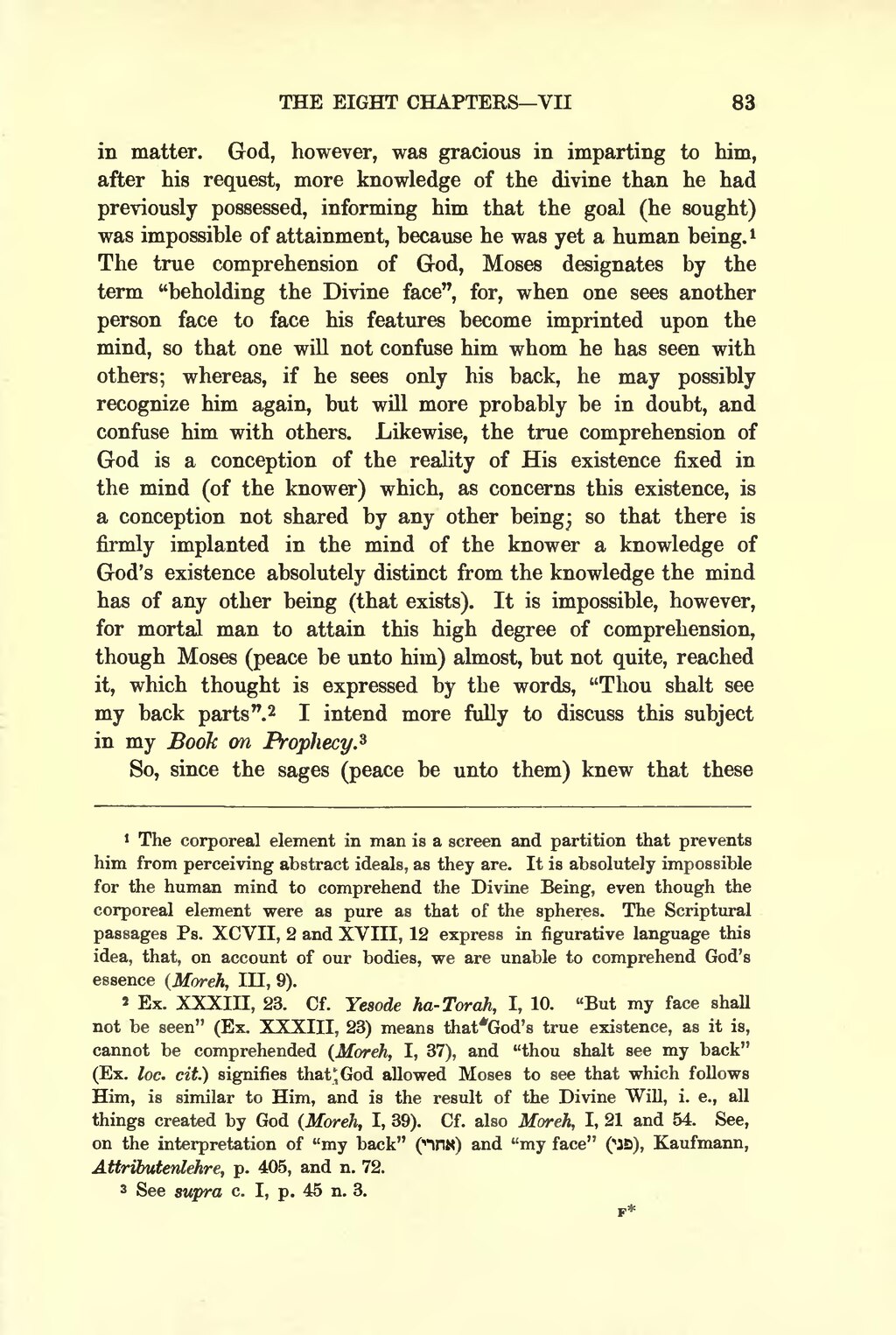in matter. God, however, was gracious in imparting to him, after his request, more knowledge of the divine than he had previously possessed, informing him that the goal (he sought) was impossible of attainment, because he was yet a human being.[1] The true comprehension of God, Moses designates by the term "beholding the Divine face", for, when one sees another person face to face his features become imprinted upon the mind, so that one will not confuse him whom he has seen with others; whereas, if he sees only his back, he may possibly recognize him again, but will more probably be in doubt, and confuse him with others. Likewise, the true comprehension of God is a conception of the reality of His existence fixed in the mind (of the knower) which, as concerns this existence, is a conception not shared by any other being; so that there is firmly implanted in the mind of the knower a knowledge of God's existence absolutely distinct from the knowledge the mind has of any other being (that exists). It is impossible, however, for mortal man to attain this high degree of comprehension, though Moses (peace be unto him) almost, but not quite, reached it, which thought is expressed by the words, "Thou shalt see my back parts".[2] I intend more fully to discuss this subject in my Book on Prophecy.[3]
So, since the sages (peace be unto them) knew that these
- ↑ The corporeal element in man is a screen and partition that prevents him from perceiving abstract ideals, as they are. It is absolutely impossible for the human mind to comprehend the Divine Being, even though the corporeal element were as pure as that of the spheres. The Scriptural passages Ps. XCVII, 2 and XVIII, 12 express in figurative language this idea, that, on account of our bodies, we are unable to comprehend God's essence (Moreh, III, 9).
- ↑ Ex. XXXIII, 23. Cf. Yesode ha-Torah, I, 10. "But my face shall not be seen" (Ex. XXXIII, 23) means that God's true existence, as it is, cannot be comprehended (Moreh, I, 37), and "thou shalt see my back" (Ex. loc. cit.) signifies that!; God allowed Moses to see that which follows Him, is similar to Him, and is the result of the Divine Will, i. e., all things created by God (Moreh, I, 39). Cf. also Moreh, I, 21 and 54. See, on the interpretation of "my back" (אתרי) and "my face" (פני), Kaufmann, Attributenlehre, p. 405, and n. 72.
- ↑ See supra c. I, p. 45 n. 3.
